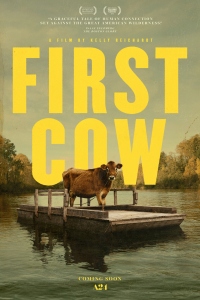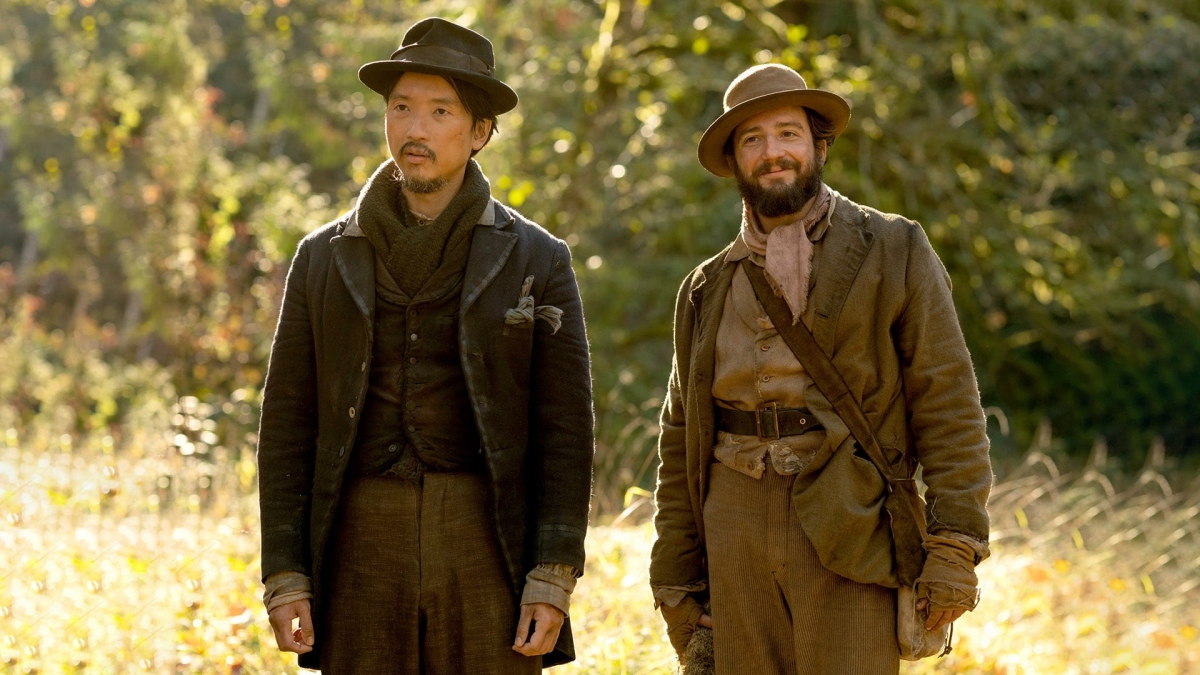I usually don’t have much trouble writing about good films—and First Cow is a very good film—but this time it’s a challenge. I won’t tell you how many words I’ve written and deleted so far—you may not believe me and think I’m being melodramatic—but it’s hard to say much without giving too much away. So, I’ve decided to say very little and simply encourage you to watch it. But I think I’m safe in saying three things:
First, First Cow is a western, and if you don’t happen to like westerns, watch this one anyway. The director, Kelly Reichardt, creatively reimagines the genre and produces a film that delights and makes us think and imagine things in fresh ways.
Second, First Cow is not fast paced. Like Paterson (2016) and The Station Agent (2003), First Cow invites is to pause, to ignore the cultural pressures that reward utilitarian efficiency and speed and be drawn instead into a story that unfolds at a pace that allows reflection. I am not suggesting that fast-paced films are bad—I enjoy being swept along from one perilous adventure and explosion to another. It’s just that frantic is not the only way that cinema can provide delight.
And finally, First Cow is full of surprises. At least it was for me. Which is the reason I am not saying much about it. In most films, a spoiler would consist of revealing the ending—in this case, spoilers would include all sorts of scenes and twists in the plot. Reichardt doesn’t just reimagine the film as a western, she reimagines the various iconic scenes and themes westerns tend to include. I especially liked her take on the proverbial bar fight—see if you don’t agree. It is redemptive to see a western where virtue rather than some form of toxic masculinity and radical individualism is celebrated. And as Kathryn Reklis notes in The Christian Century (April 21, 2021), Reichardt’s ability to see beyond the clichés of the genre expands our vision of what it meant to be human in the American wild west.
First Cow’s most radical revision of the genre is to suggest how many stories about the West are buried from our view. Under the mythology of the self-determining White pioneer or cowboy are stories of people from many lands and of many races who formed unexpected friendships and resisted a system that saw them only as bodies from whom labor could be extracted. In the American West, these people pursued their own dreams, which sometimes aligned with the mythology but often didn’t. (p. 44-45)
Besides the normal questions worth using for any film discussion—which you can find here—I’ll conclude with four discussion and reflection questions specific to First Cow:
We are used to movies filling a rectangular screen but this one is filmed in an aspect ratio that presents as a square image. It seems more like an intimate set of old photos than a piece of cinema. What does this add, or subtract from the film?
What is the greatest surprise for you in First Cow? Why do you think that is?
How will First Cow change your view of other westerns?
The film opens with a quote by William Blake (1757-1827): “The bird a nest, the spider a web, man friendship.” What’s the significance?

Film credits: First Cow
Directed by Kelly Reichardt
Screenplay written by Kelly Reichardt and Jon Raymond based on his novel, The Half-Life (2004).
Music by William Tyler
Cinematography by Christopher Blauvelt
Film Editing by Kelly Reichardt
Set Decoration by Vanessa Knoll
Starring:
Alia Shawkat (Woman with Dog)
John Magaro (Cookie)
Orion Lee (King-Lu)
Evie (The Cow)
Toby Jones (Chief Factor)
Scott Shepherd (Captain)
Gary Farmer (Totillicum)
Sabrina Morrison (Totillicum’s Wife)
Lily Gladstone (Chief Factor’s Wife)
John Keating (Heckler in Saloon)
Jared Kasowski (Thomas)
Ewen Bremner (Lloyd)
U.S.A.; A24, IAC Films, Film Science.
Aspect ratio: 1.37:1
122 minutes; Rated PG-13 (language)



